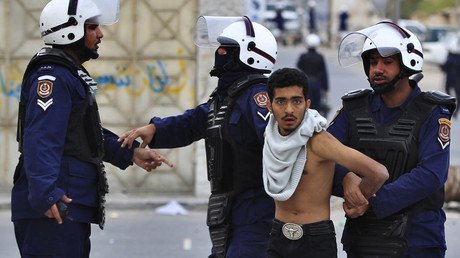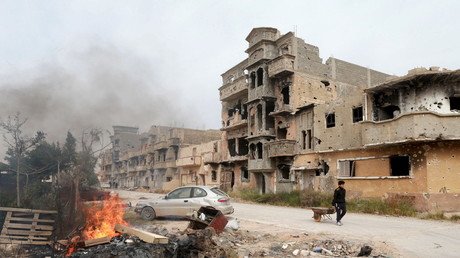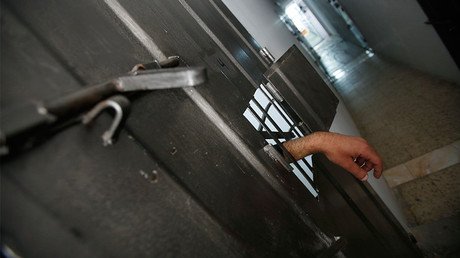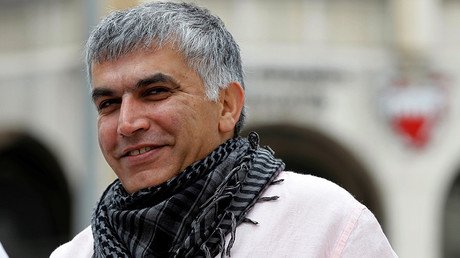‘Nabeel Rajab’s sentence is a slap in the face of the rule of law & human rights’
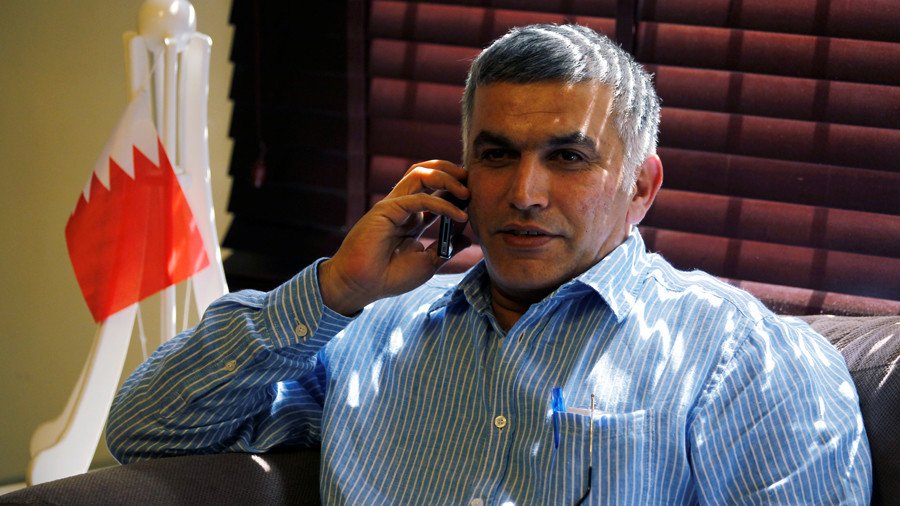
Nabeel Rajab’s sentence makes a mockery of justice, proving that Bahrain follows a reprisal policy against human rights defenders, senior advisor at the Bahrain Center for Human Rights Sheikh Maytham Al-Salman said.
Rajab is a prominent human rights activist and the president of the Bahrain Centre for Human Rights. He has been sentenced to five years in prison for criticizing on Twitter the Gulf Kingdom’s role in the war in Yemen.
He is already serving a two-year sentence for previously “publishing and disseminating rumors and false news,” apparently in connection with a number of TV interviews he gave in 2015 and 2016.
READ MORE: Bahrain sentences top rights activist Rajab to 5 years in prison – lawyer
RT spoke to Nabeel Rajab's cousin – Sheikh Maytham Al-Salman, a senior advisor at the Bahrain Center for Human Rights – to discuss the issue of human rights in Bahrain.
RT:What are your thoughts on the sentence?
Sheikh Maytham Al Salman: The sentence is a clear mockery to justice, a slap to the rule of law and to human rights values, standards and principles. After having more than 20 court hearings, the authorities failed to present substantial evidence to charge Nabeel. All Nabeel did was, he focused on warning all sides on the destructive result of war in Yemen. He called upon all sides to resort to dialogue and to peace rather than war and destruction. Nabeel has been charged today for expressing his views openly in a matter which is well agreed upon today in the human rights community and at international level. He forecasted that if the war in Yemen continues, Yemen will face a humanitarian catastrophe. And he should be honored and given credit for that. Because today the international community agrees that Yemen is facing a humanitarian catastrophe due to the persistence of war rather than dialogue and peace in Yemen. Plus, today we’ve seen, the court has confirmed the death sentences of four Bahrainis which is a clear indicator that the government of Bahrain is closing down all space for freedom of expression, for freedom of assembly and we are truly witnessing a human rights catastrophe in Bahrain.
RT: How typical is this of the Bahraini authorities’ treatment of dissidents? Are they coming down particularly hard on Nabeel Rajab or is it like this across the board?
MS: In Bahrain the government is following a reprisal policy against human rights defenders. Human rights defenders in Bahrain are either behind bars, banned from travelling or living in exile. And the government of Bahrain refuses to partner with UN human rights mechanisms and allow UN special rapporteurs to visit Bahrain: Amnesty International, Human Rights Watch and other human rights organizations are not allowed to visit the country. It is clear that the government in Bahrain is unfortunately targeting human rights defenders at all levels today.
RT: What sort of treatment is Nabeel currently receiving? What are conditions like in the country’s prisons?
MS: Nabeel Rajab today is unfortunately placed in a cell with four or five members of the Bahrain ISIS branch. The government has deliberately placed Nabeel in that prison cell. He had health concerns. And FIDH (International Federation for Human Rights) and the Bahrain Center for Human Rights have expressed their concerns on his health conditions and his right to choose a reliable and trusted party to provide him with medical care. His situation is quite serious on a personal level. However, his position is basically persisting with his right to express his views to defend the rights of all Bahrainis regardless of their religious background, regardless of their identities. And that is why he was smiling at court and he had a sign of victory... to indicate that he will remain persistent and loyal to his human rights values and principles.
